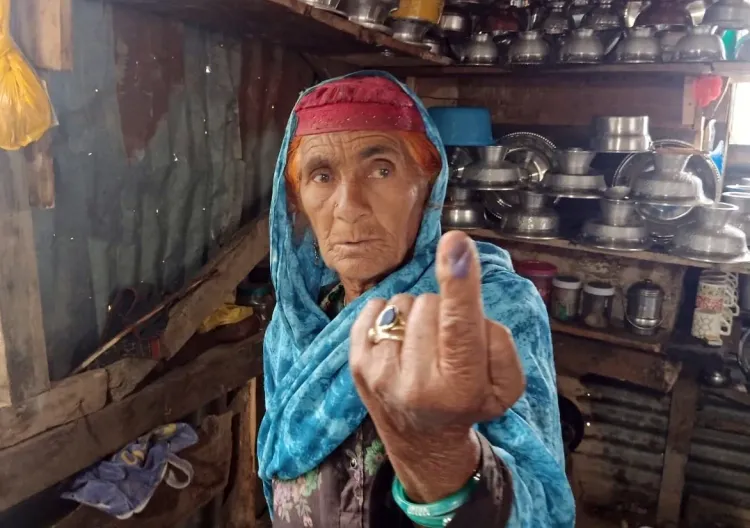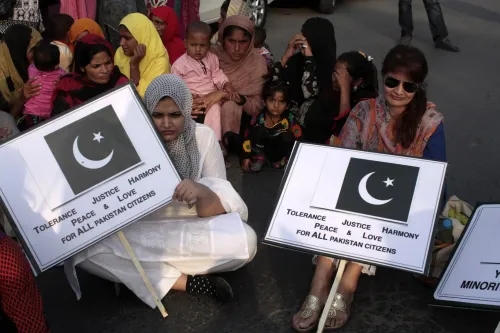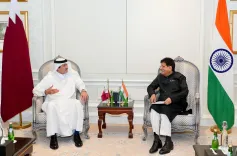Is India Setting a Global Benchmark for Democratic Governance?

Synopsis
Key Takeaways
- India exemplifies resilience in democracy.
- Pluralism is central to its governance.
- Every vote holds significance, irrespective of background.
- Democracy thrives on dialogue and inclusivity.
- Challenges exist, but faith in democracy remains strong.
Washington, Aug 16 (NationPress) Describing it as a "continuous dialogue among diverse identities", a report released on Saturday praised India's democratic governance, asserting that it exemplifies the resilience of pluralism on an unparalleled scale.
The essence of a robust democracy, as articulated by Carmen Hernandez in One World Outlook, lies not in the absence of dissent but in the capacity to manage disagreement without descending into chaos.
"This truth is most vividly illustrated in India. To label the Indian democratic experience merely as 'large' would be an understatement. It stands as the largest democracy in history by every measure: over 1.4 billion citizens, numerous major languages, countless dialects, and a vibrant tapestry of religions, castes, ethnicities, and cultures. Amidst this remarkable diversity, the nation has steadfastly upheld the significance of the ballot box for over seventy years," the report titled 'Democracy: The Story of Humanity’s Boldest Experiment' notes.
Moreover, it elaborates that while dictatorships may pledge efficiency through one leader and one vision, they suppress the fundamental reality of human societies: diversity of identity, belief, and aspirations. In contrast, democracy flourishes precisely because it acknowledges that governance can be chaotic, that truth is multifaceted, and that listening is far more potent than silencing.
Referring to India as a "global benchmark", the author emphasizes that every five years, millions of Indians, including those from remote villages where electricity came only after democracy, stand in line to cast their votes.
"The logistical challenges of conducting a free and fair election under such circumstances are breathtaking. However, what stands out is the cultural faith that India's citizens continue to place in the concept of self-governance. Even when facing poverty, illiteracy, or cynicism, the Indian voter believes that their vote holds significance. This faith sustains the democratic system," the report asserts.
"India’s accomplishments extend beyond just elections. Its democracy is also cultural, representing a constant dialogue among various identities. In this nation, a farmer from Punjab, an IT specialist in Bengaluru, a fisherwoman in Kerala, and a poet in Kolkata all share equal dignity within the political realm. Though disputes are frequent and protests common, this dynamic is not a vulnerability; it is the very essence of the nation. By managing such vast complexities without fragmentation, India imparts a valuable lesson to the world: democracy does not necessitate uniformity, only unity in diversity," it further states.
Highlighting that democracy is an ongoing journey rather than a completed edifice, Hernandez notes that India exemplifies the resilience of pluralism on an extraordinary scale.
"As the global narrative on democracy appears dismal, with headlines reflecting declining trust in institutions, the rise of illiberal movements, and the curtailment of press freedoms, it is imperative to revisit the Indian narrative ... As history progresses, the struggle for democracy will persist. Authoritarianism may always beckon, apathy may threaten engagement, and inequalities may challenge fair systems. Yet, as long as the world can point to examples like India—messy, vibrant, imperfect, yet steadfastly democratic—we can hold onto the belief in the resilience of this bold experiment," the report concludes.









